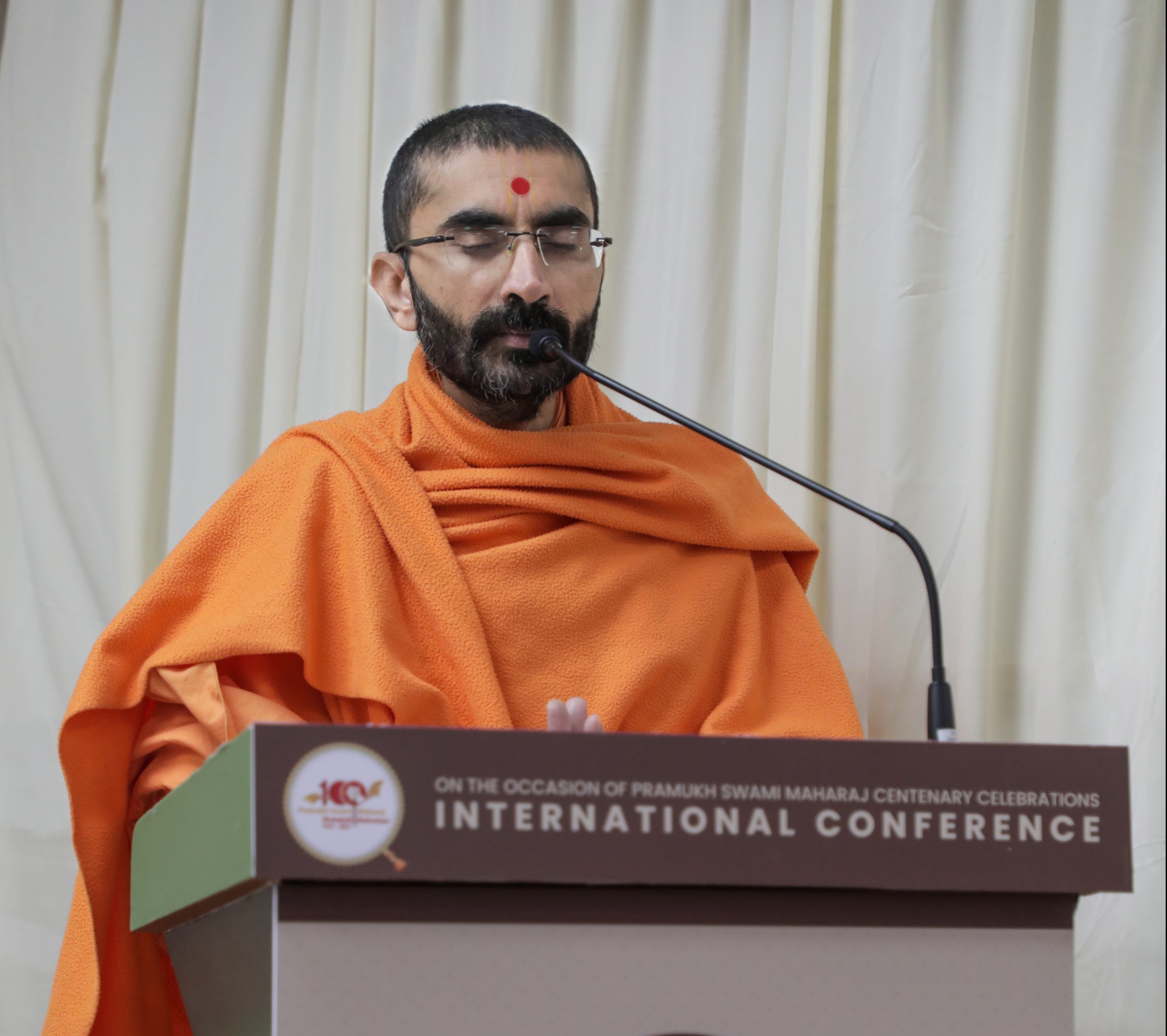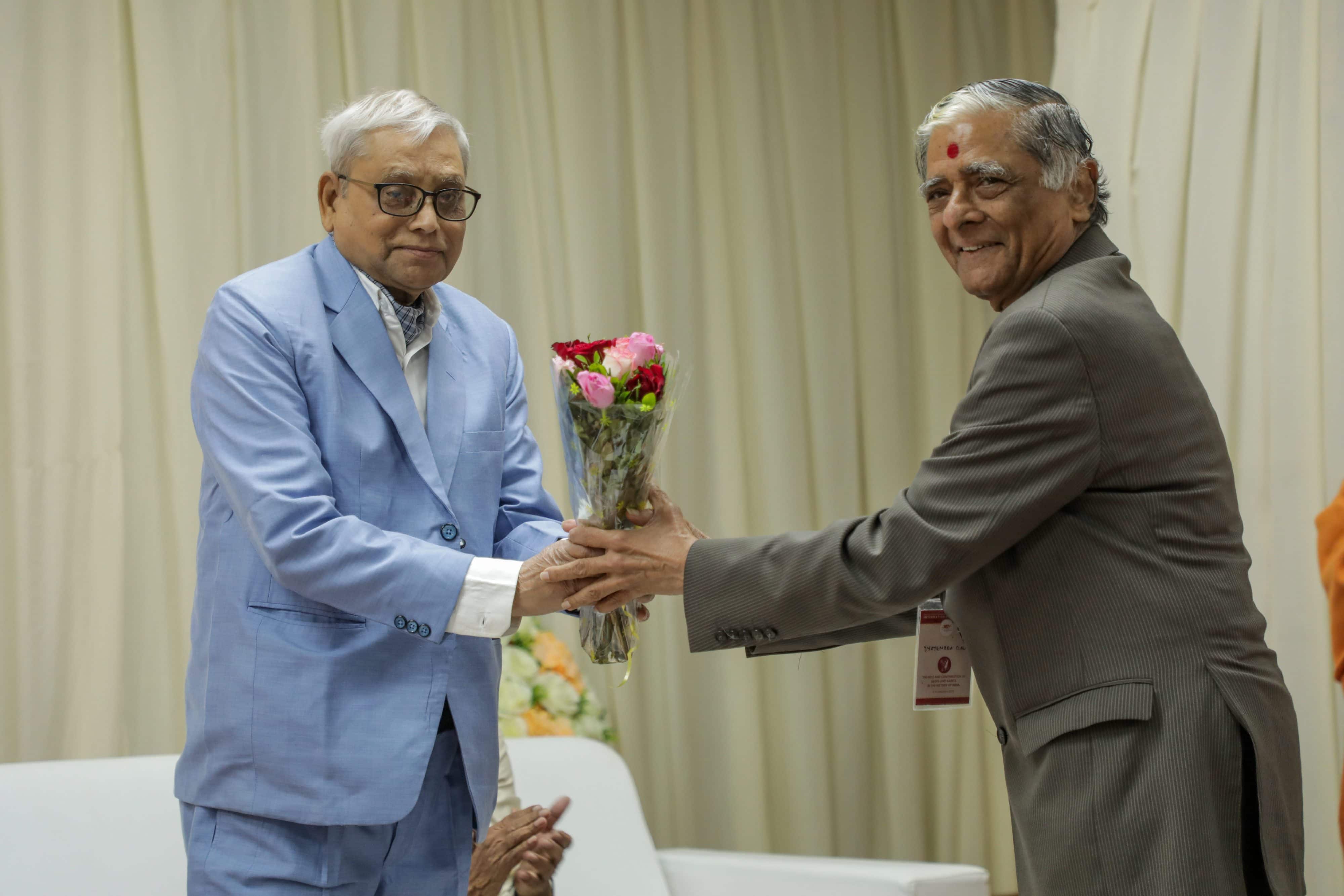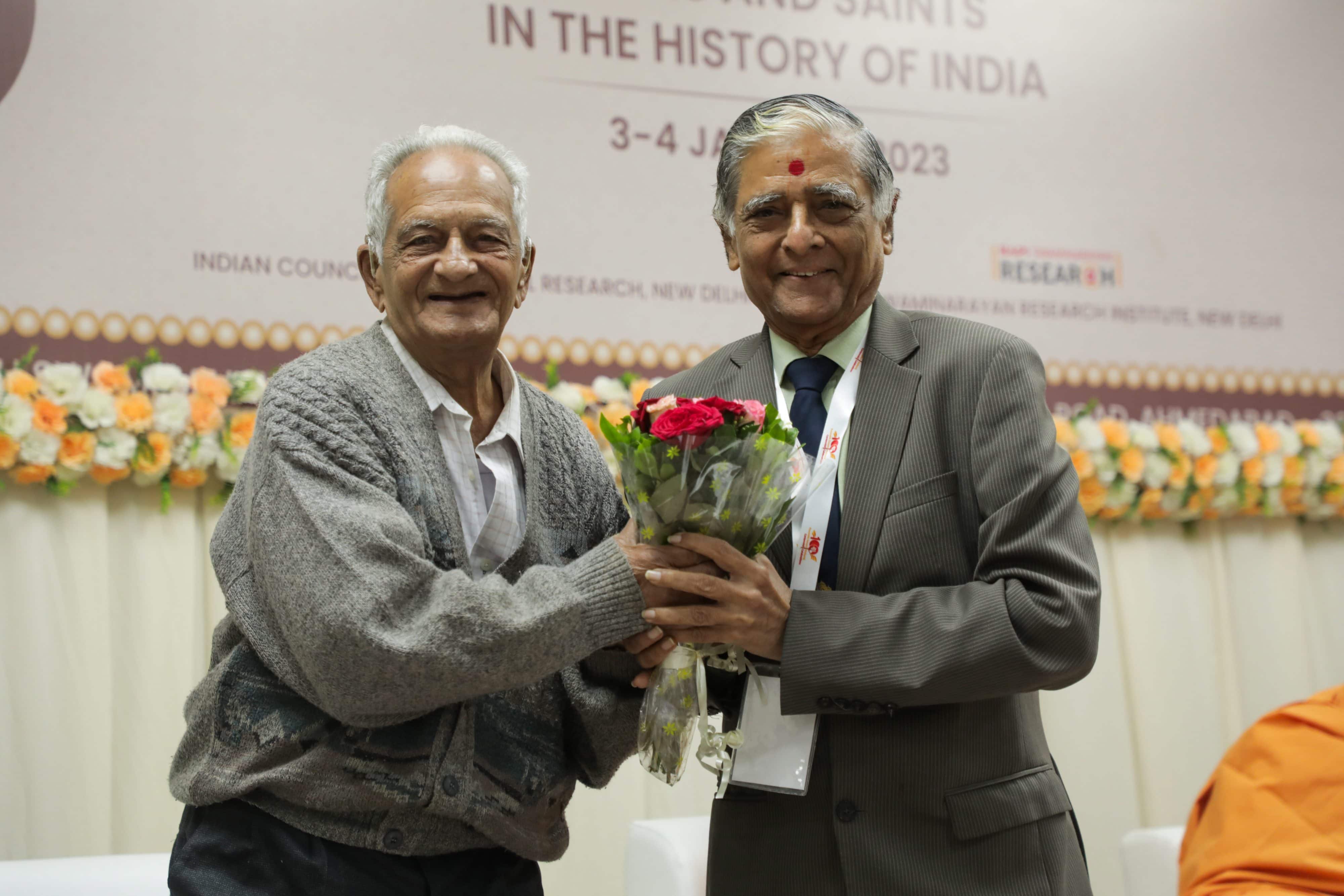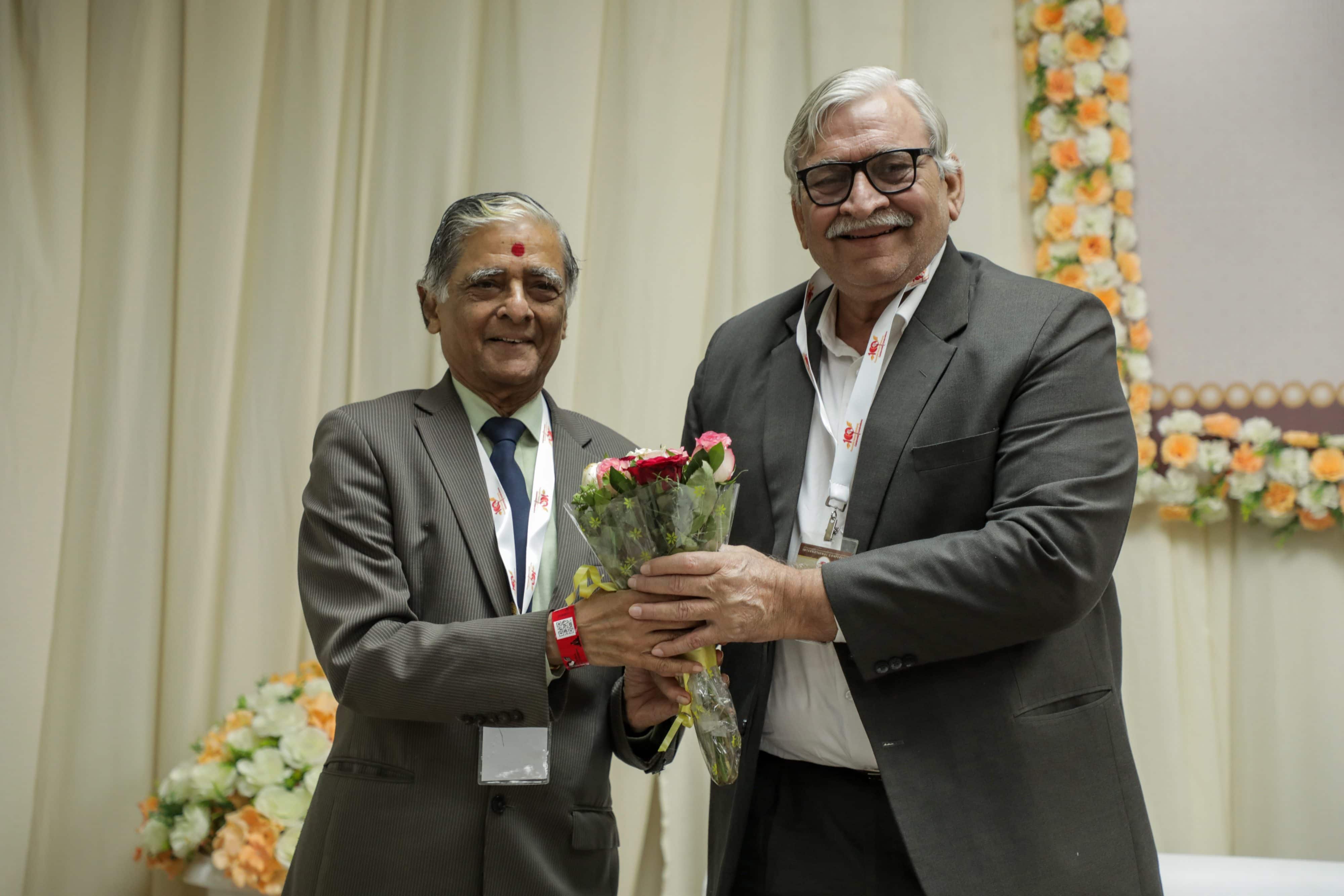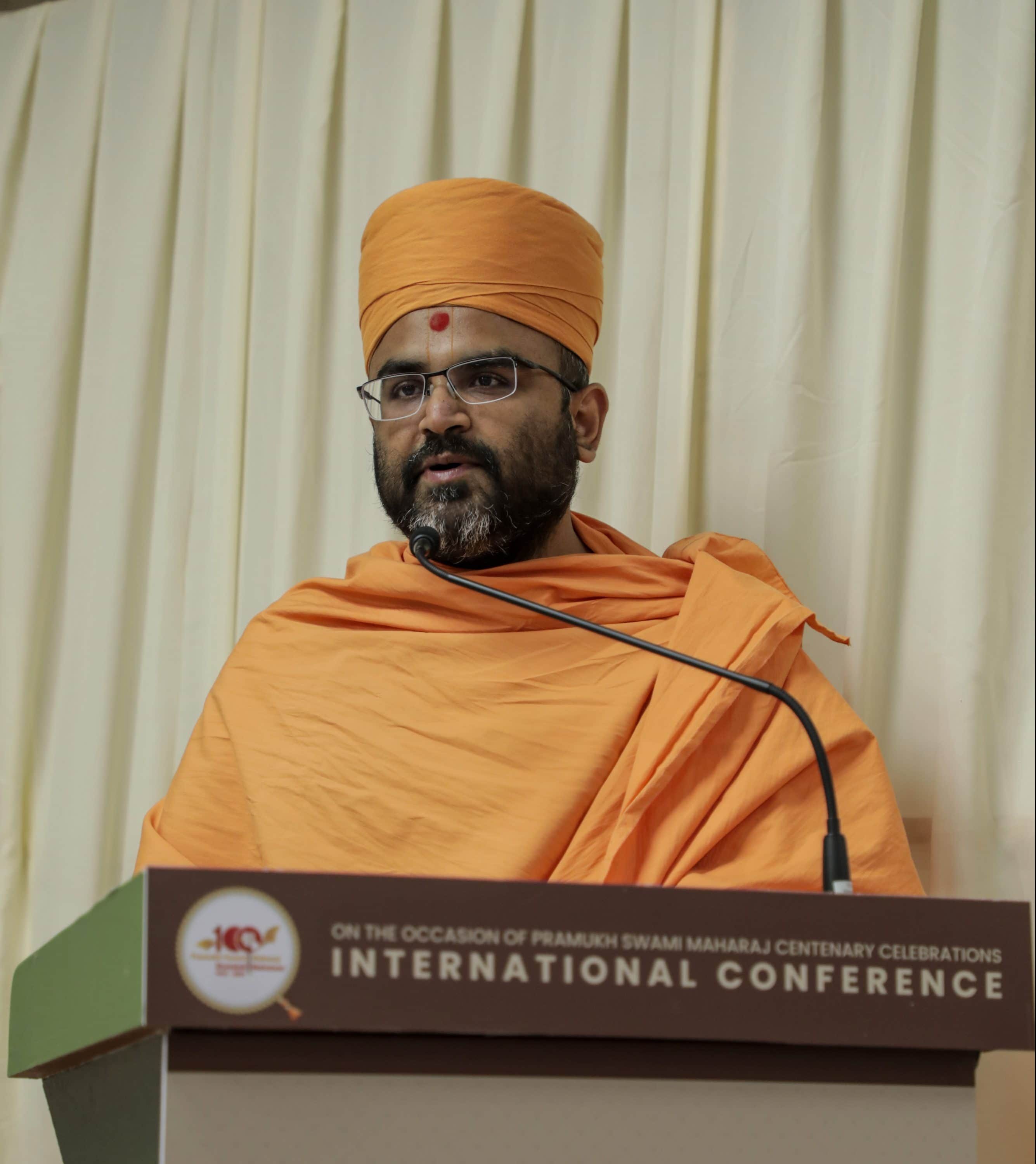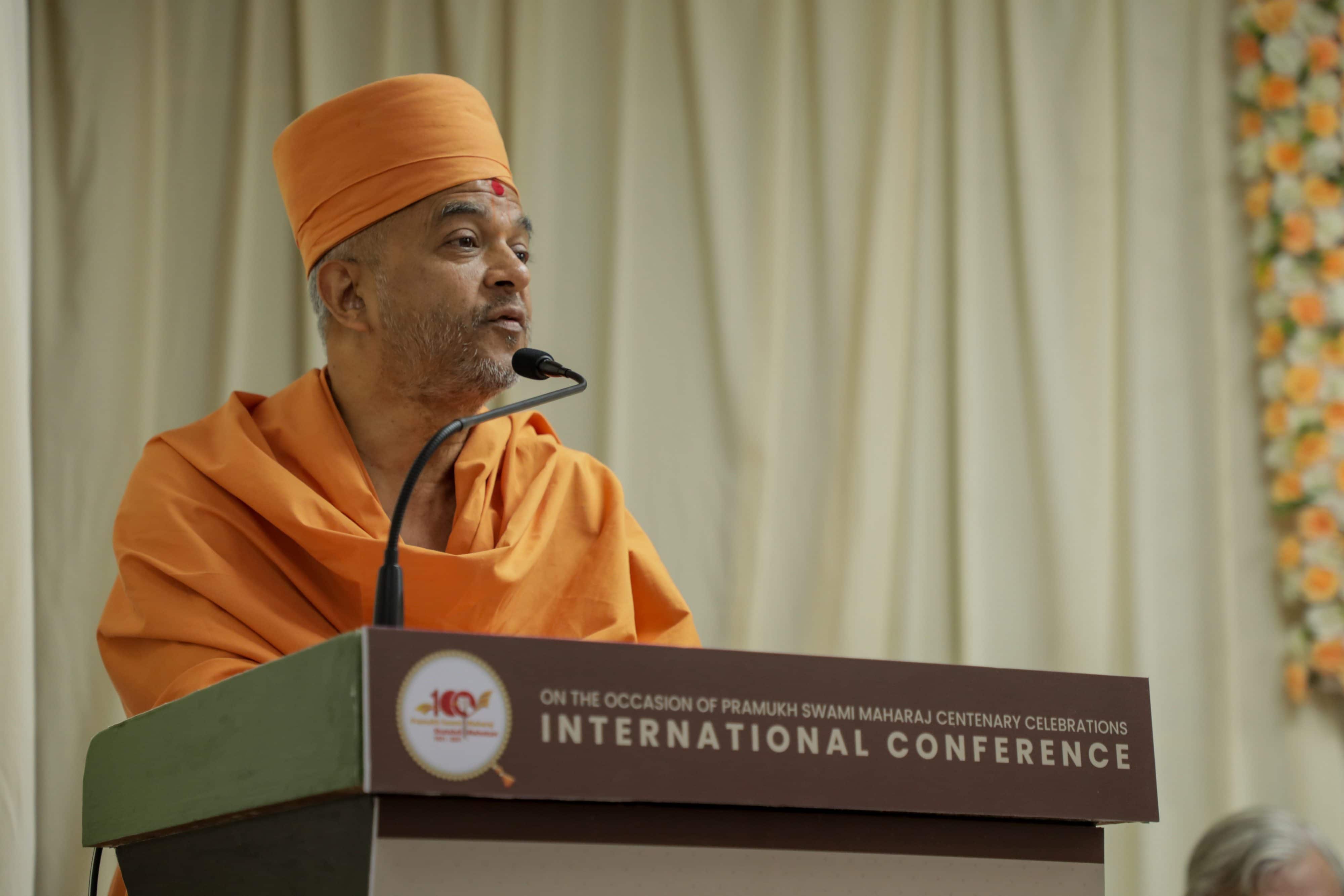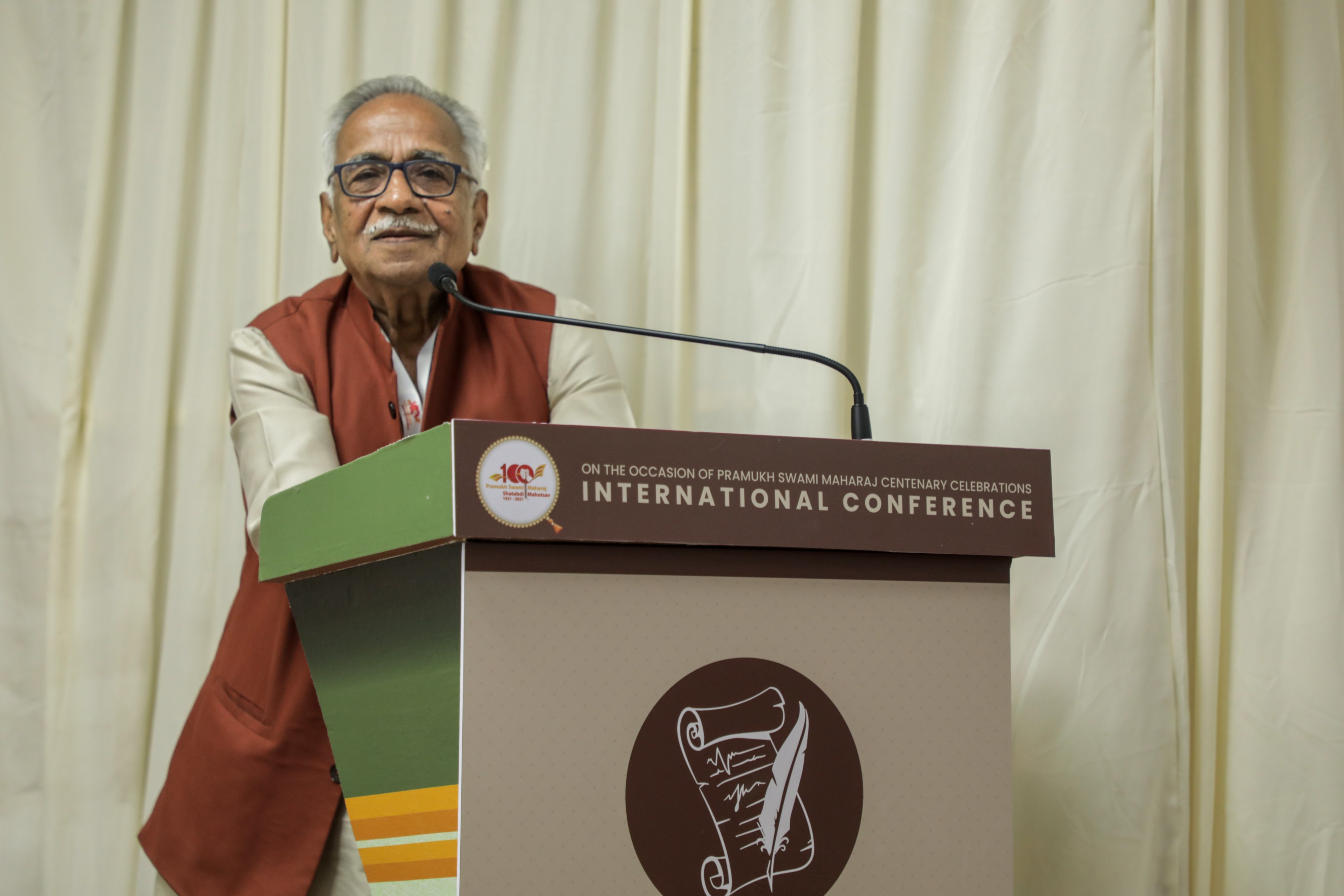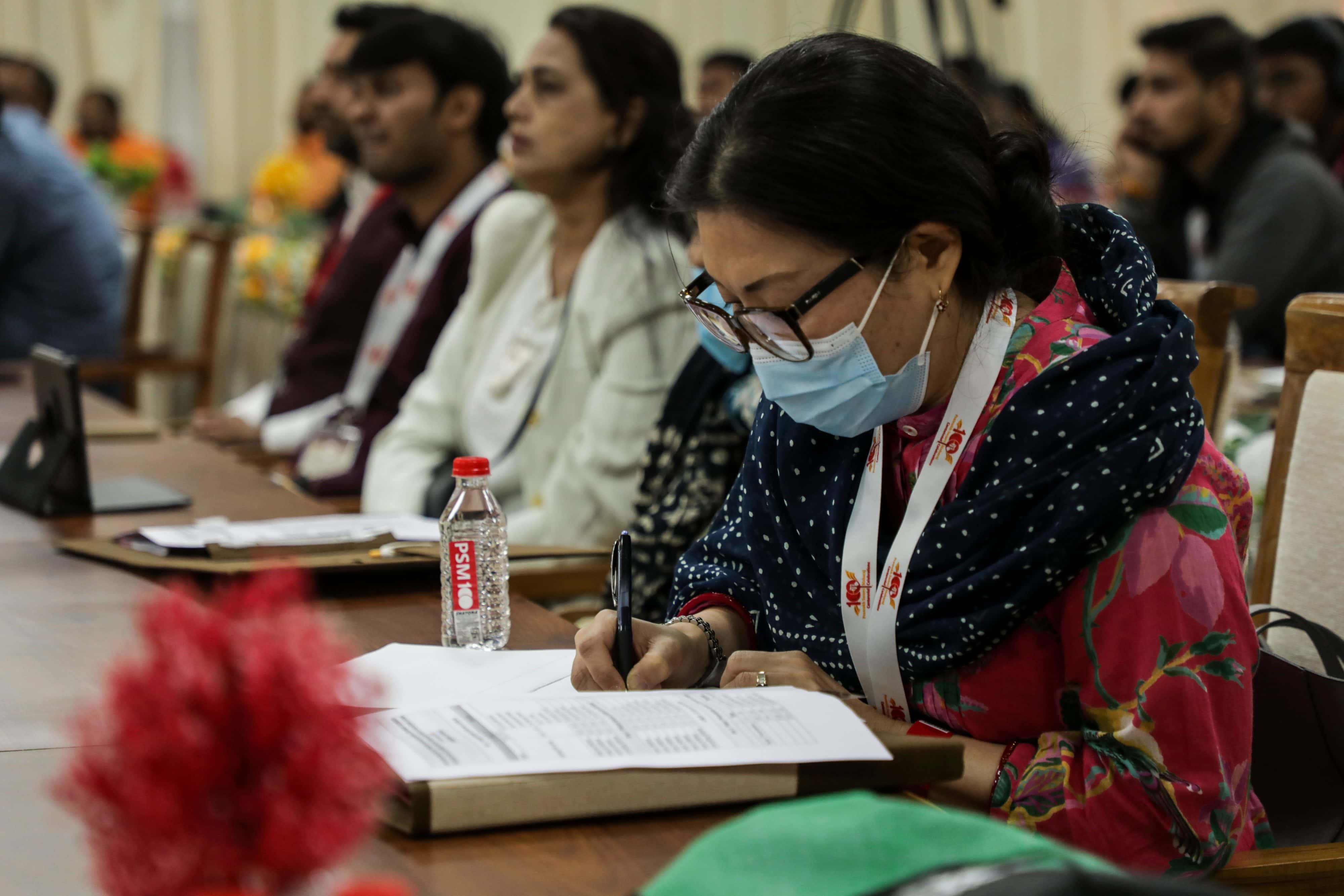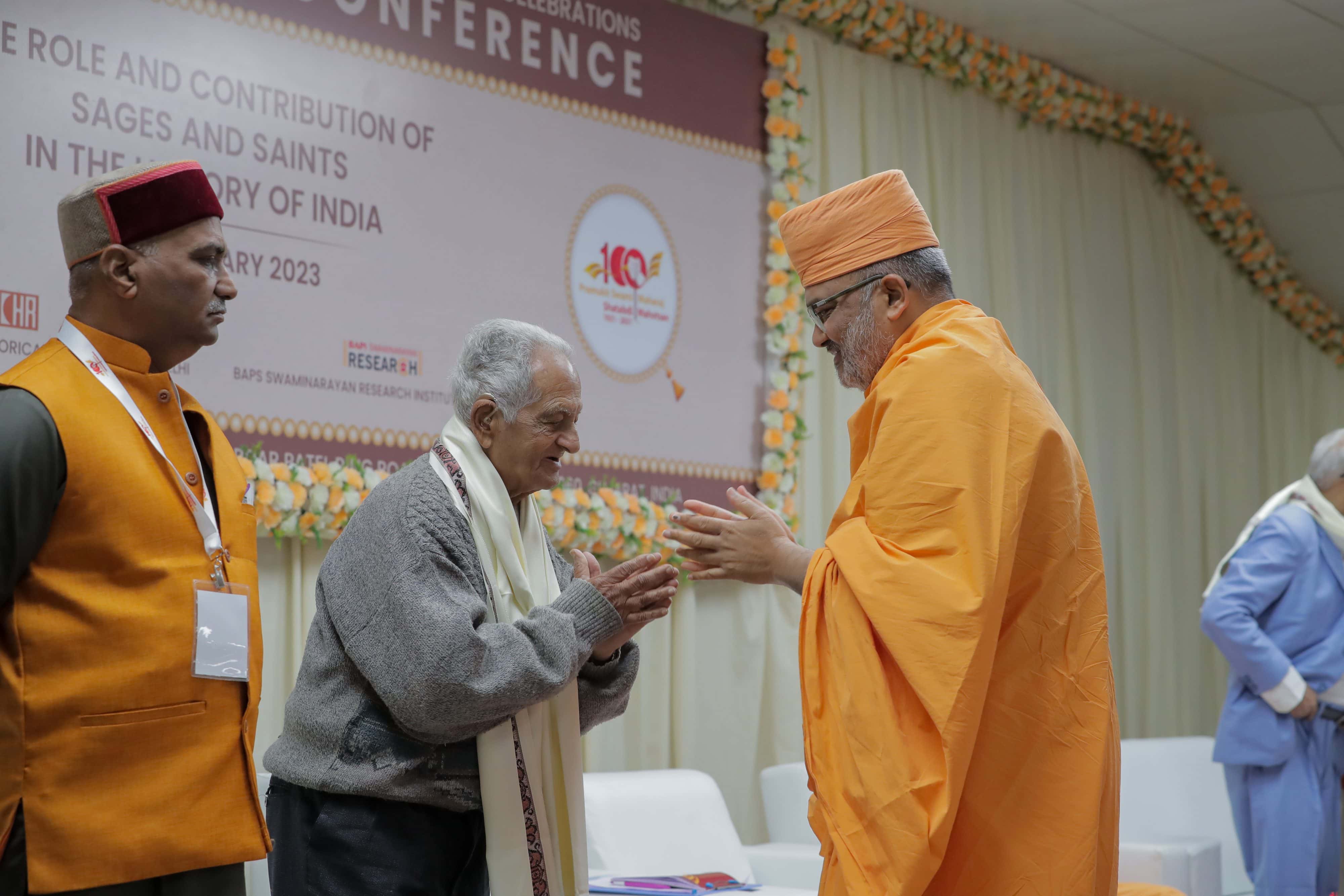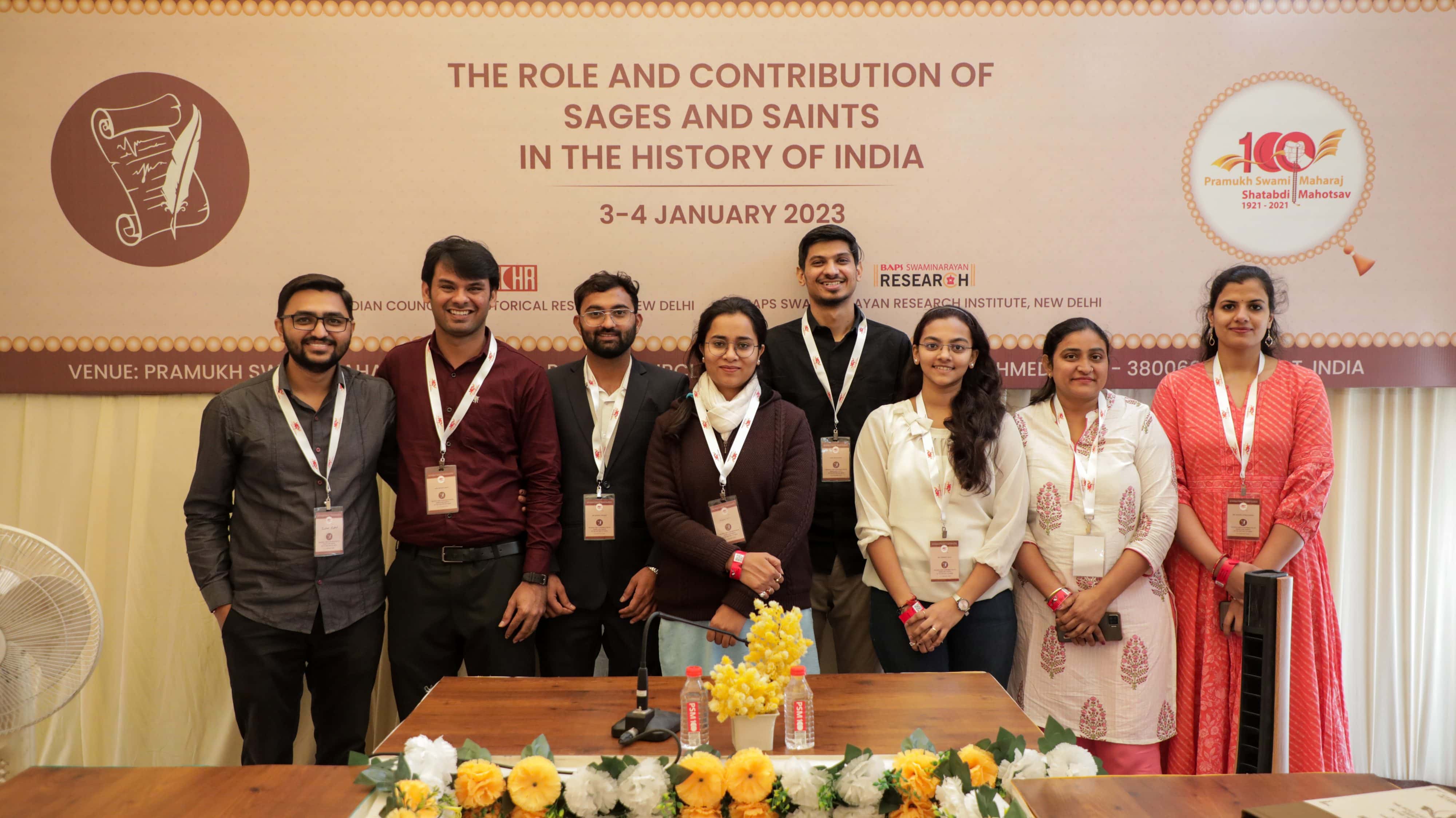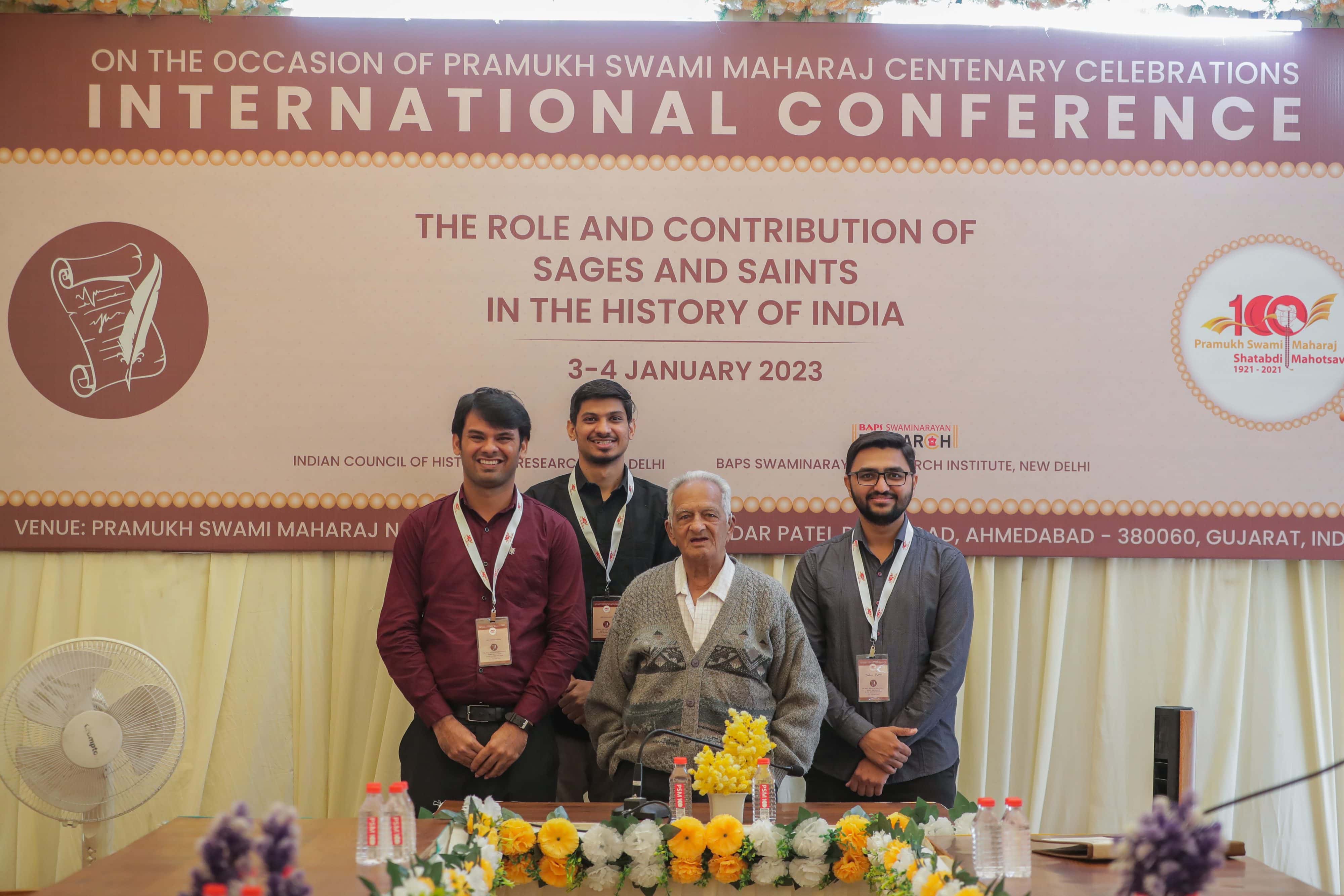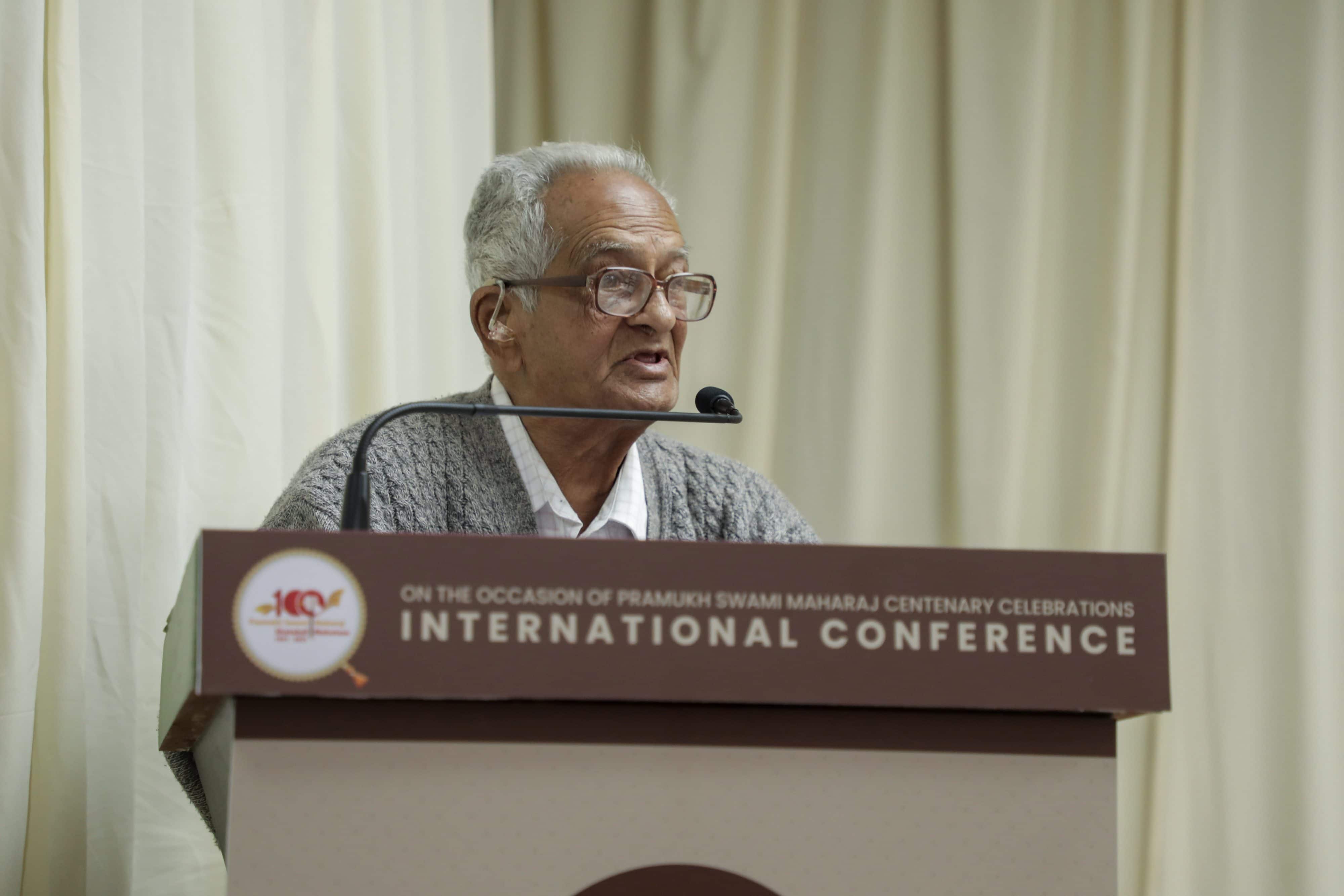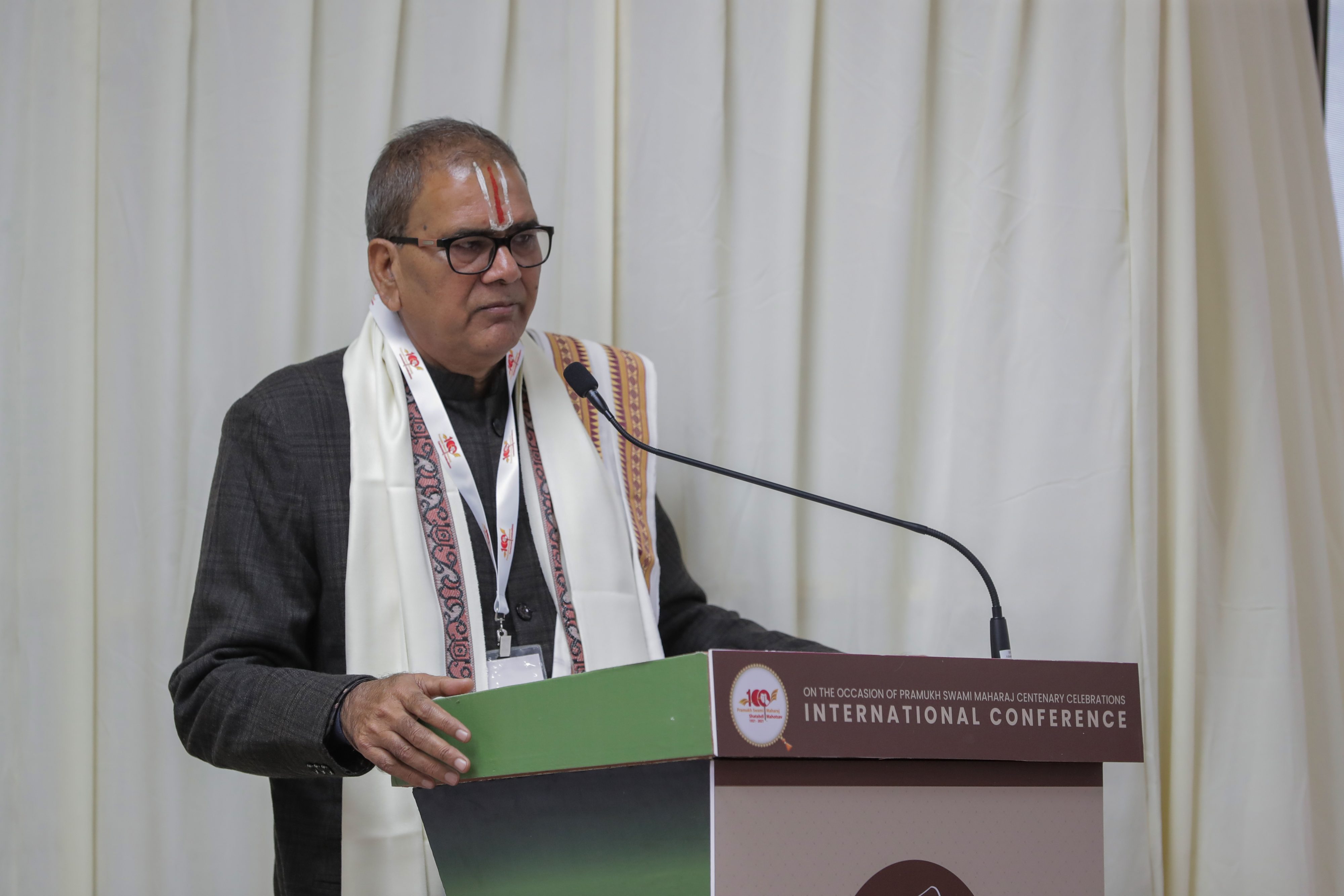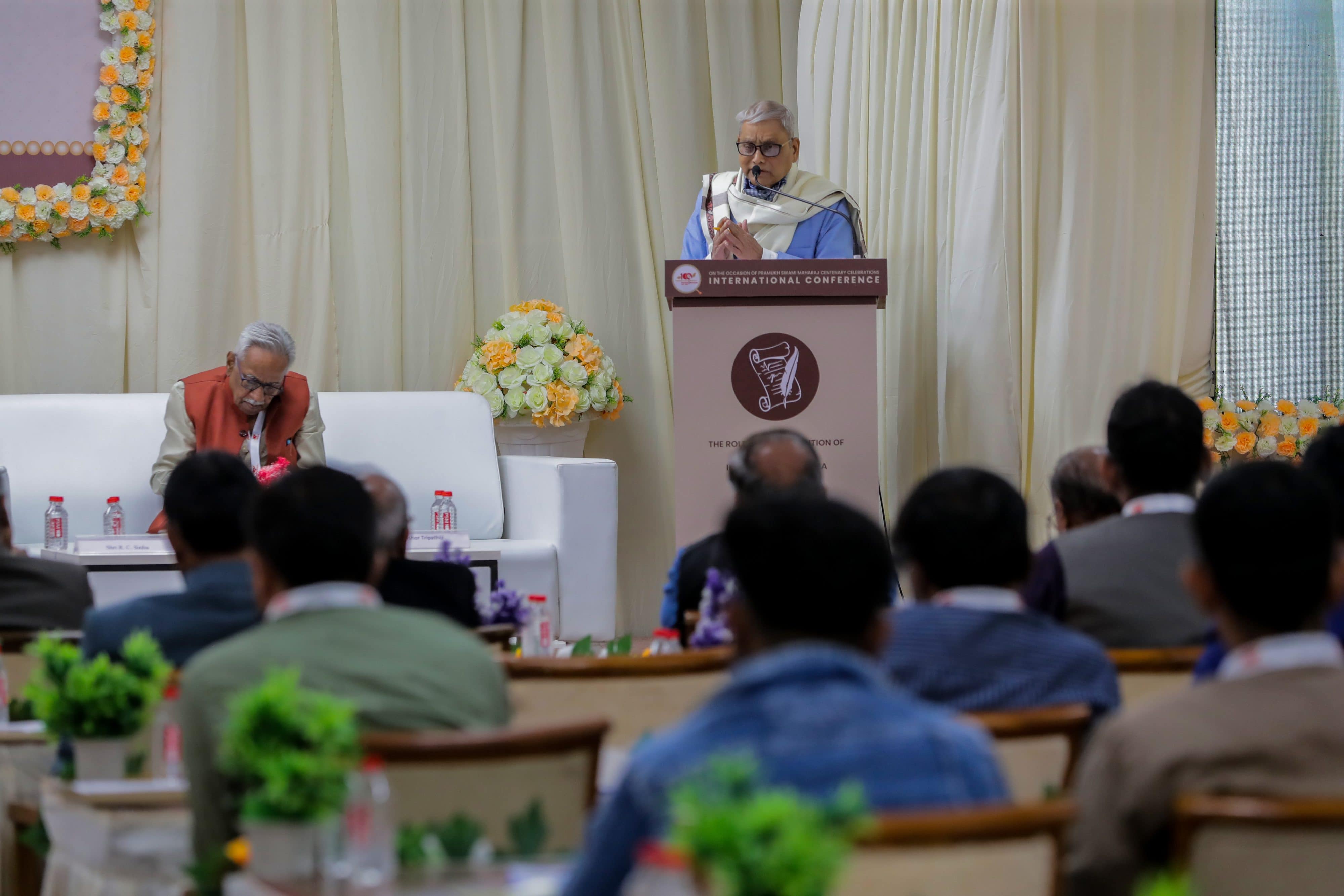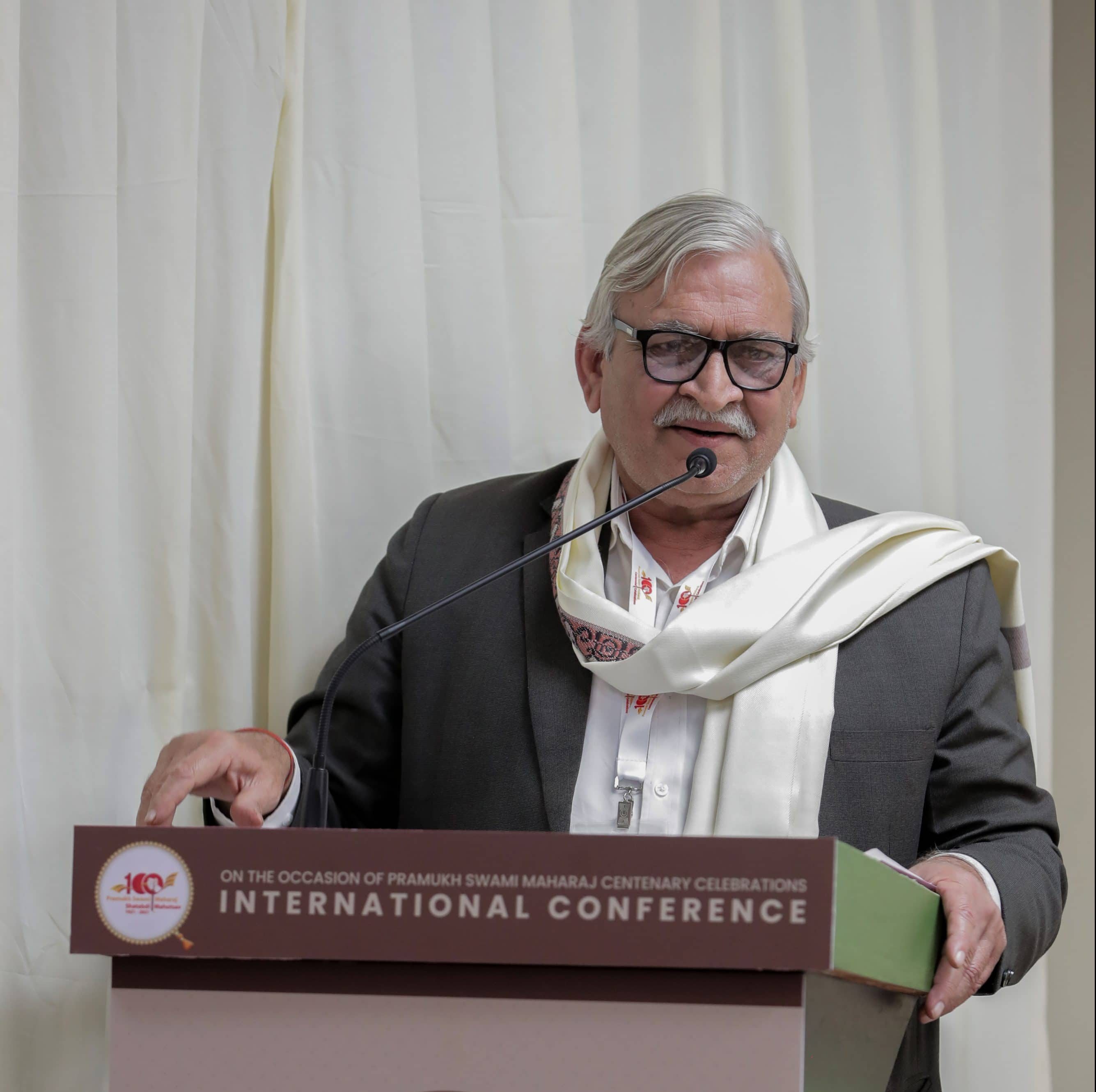The second day of the conference began with various scholars presenting their original research. Prof. Sondra Hausner, a Professor of the Anthropology of Religion at the University of Oxford, pointed out in her presentation that “principal examples of renunciation and social work are found thriving in the Pramukh Swami Maharaj Nagar.” She stressed on the role of renunciation, and argued how it is used by practitioners “to transcend earthly limitations in a worldly body. The urge for liberation is foundational to the renunciation of the ascetic.” Thereafter, Prof. William Pinch, a Professor of History and Environmental Studies at Wesleyan University, compared two historical events during the late eighteenth century: the renunciations by Sahajanand Swami and Himmat Bahadur in northern India, through the lens of Sankhya and Yoga. Prof. Shonaleeka Kaul, an Associate Professor in the Centre for Historical Studies at Jawaharlal Nehru University, then elaborated on the bhakti traditions of early Kashmir. A presentation was then given by Prof. Bhakti Mamtora, an Assistant Professor of South Asian Studies at the College of Wooster. She analyzed “the conceptions of the self and practices for self-cultivation in the Swamini Vato, a collection of oral teachings given by Gunatitanand Swami” (the spiritual successor of Bhagwan Swaminarayan). She also elaborated on the principle of agency in devotional traditions. Thereafter, Shri Mukti Patel, a graduate student at the University of Chicago, compared the poetic compositions of Narsimha Mehta and Muktanand Swami. Shri Bhavi Bhagat, a graduate student at Harvard University, then provided a historical context of the opium trade in colonial India and emphasized the role of de-addiction campaigns initiated by BAPS. Finally, Dr. Shalin Jain, a Professor at the University of Delhi, highlighted the socio-cultural relations fostered between the Jain ascetic Harivijay Suri and the Mughal Emperor Akbar.
In the next session, Shri Abhijit Jogi focused on the process of cultural construction through history and how India’s past must be examined for points of cultural change. Shri Hershini Soneji, a graduate student at the University of Cambridge, then elaborated on verbal testimony and its importance in the Swaminarayan-siddhanta-sudha, a Sanskrit text describing the philosophical positions of the Akshar-Purushottam Darshan. Thereafter, Shri Vandan Gor, a research scholar at the Maharaja Sayajirao University of Baroda, outlined the concept of ahimsa (non-violence) as historically understood in the Swaminarayan tradition. He also explained how internalizing ahimsa is part of a larger devotional goal in the tradition. Shri Tushar Shah, a Visiting Lecturer at the University of Roehampton and a Doctoral Candidate at the University of Cambridge, then touched upon aspects of Pramukh Swami Maharaj’s ecumenism and his role in bringing together communities and religious leaders. Finally, Shri Anchit Jain, a graduate student at the University of Delhi, emphasized the role of “Bhagwan Swaminarayan and his spiritual successors in the evolution of festivals like Jal-Jhilani” and how these festivals have become global events.
A parallel session was chaired by Dr. Shalin Jain. Dr. Vinod Kumar Singh, an Assistant Professor in the Department of English at the University of Delhi, began the session by presenting his work on Tulasi Ramayana. He showed how “Tulsi employed literature to educate people and resisted cultural disintegration in his own time.” Thereafter, Dr. Prem Singh, an Assistant Professor at Jaynarayan Vyas Vidhyalaya at Jodhpur, elaborated on the Niranjani Sampradaya in Rajasthan and elucidated how nirgun bhakti traditions co-opted the message of Vedanta within bhakti traditions. Dr. Bharat Rathod, an Assistant Professor at Government Arts and Commerce College in Jaffarabad, then focused on the life, work, and message of guru Jagjivan Bapu in the Saurashtra regions of Gujarat. Shri Jay Pandya, a Doctoral Candidate at the University of Sydney, then explored “the role that saints and sages, like Pramukh Swami Maharaj, have played in the development of democracy in India. He highlighted how they have promoted democratic participation and contributed to discourses on secularism.” Thereafter, Shri Ishan Modi, a research scholar at Maharaja Sayajirao University of Baroda, presented on the works of Nishkulanand Swami, a disciple of Bhagwan Swaminarayan, and demonstrated how his works provide “critical resources to understand the history of the Sampradaya.” In a similar vein, Shri Sahaj Parikh, a graduate student at the University of California in Santa Barbara, presented on the poetic compositions of Brahmanand Swami and his corpus of works “in consolidating and disseminating the religious and secular teachings of Swaminarayan.”


